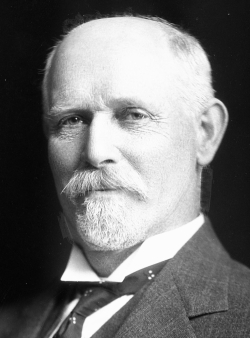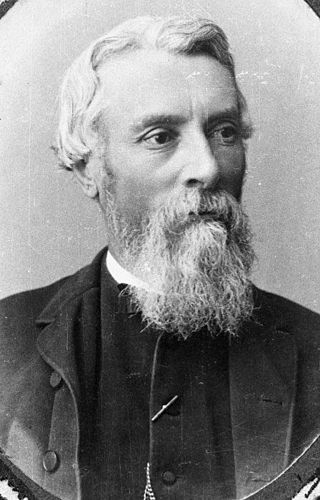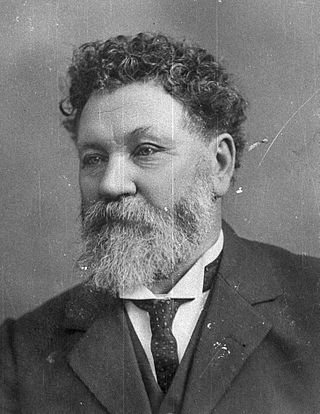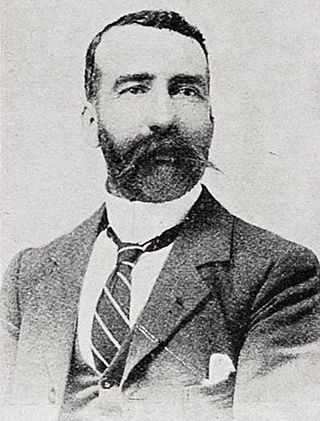Related Research Articles

Kaiapoi is a town in the Waimakariri District of the Canterbury region, in the South Island of New Zealand. The town is located approximately 17 kilometres north of central Christchurch, close to the mouth of the Waimakariri River. It is considered a satellite town of Christchurch and is part of the Christchurch functional urban area.

William Sefton Moorhouse was a British-born New Zealand politician. He was the second Superintendent of Canterbury Province.

Waimakariri District is a local government district, located in the Canterbury Region of New Zealand's South Island. It is named after the Waimakariri River, which forms the district's southern boundary, separating it from Christchurch City and the Selwyn District. It is bounded in the north by the Hurunui District and in the east by the Pacific Ocean.
Ashley was a New Zealand electorate situated north of Christchurch. It was in use from 1866 to 1902, and was replaced with the Hurunui electorate.

Sir George Alexander Troup was a New Zealand architect, engineer and statesman. He was nicknamed "Gingerbread George" after his most famous design, the Dunedin Railway Station in the Flemish Renaissance style. He was the first official architect of the New Zealand Railways. He designed many other stations, including Lower Hutt and Petone.

Frederic Jones was a New Zealand politician. Originally from England, he settled in the colony in 1863 for health reasons.

John McLachlan was a New Zealand Member of Parliament for Ashburton in the South Island.
Kaiapoi was a rural New Zealand electorate, north of Christchurch in the Canterbury region of New Zealand from 1861 to 1946. It was represented by twelve Members of Parliament.

Alfred Levavasour Durell Fraser was a Liberal Party Member of Parliament in New Zealand.
Richard Moore was an independent conservative Member of Parliament in New Zealand and Mayor of Kaiapoi.

James Purvis Jameson JP was Mayor of Christchurch in 1870–1871. A linen draper from the Manchester area, he emigrated with his family to Christchurch in 1863. He was involved with many organisations in Christchurch and was active in the Congregational church. For a time, he was a farmer on the Canterbury Plains.

Harry Joseph Beswick was Mayor of Christchurch in 1896.

Edward Richardson was a New Zealand civil and mechanical engineer, and Member of Parliament. Born in England, he emigrated to Australia and continued there as a railway engineer. Having become a partner in a contracting firm, a large project caused him to move to Christchurch in New Zealand, in which country he lived for the rest of his life.
The 3rd New Zealand Parliament was a term of the Parliament of New Zealand. Elections for this term were held between 12 December 1860 and 28 March 1861 in 43 electorates to elect 53 MPs. Two electorates were added to this during this term, Gold Fields District and a new Dunedin electorate created by splitting the existing City of Dunedin into Dunedin and Suburbs North and Dunedin and Suburbs South, increasing the number of MPs to 57. During the term of this Parliament, six Ministries were in power.
The Mayor of Waimakariri is the head of the municipal government of Waimakariri District in New Zealand's South Island. The mayor is directly elected using a first-past-the-post electoral system. The current mayor is Dan Gordon.

Thomas Ingham Joynt was a senior member of the New Zealand legal profession from Christchurch. Born in Ireland, he emigrated to Canterbury with his wife and child in 1856. He had commenced legal training in Dublin and was admitted to the bar in 1863 in Christchurch; at the same time, he set up his own legal firm. Over the years, he formed various partnerships with other solicitors. Joynt became known as a defence lawyer and had many high-profile cases, but he was equally successful in civil cases. In 1907, when the first ten King's Counsel were appointed in New Zealand, Joynt was acknowledged as the senior member of the bar. He practised until shortly before his death.

Kaiapoi High School is a state co-educational secondary school located in Kaiapoi, in the Waimakariri District of New Zealand's South Island. The school serves 1,080 students from Years 9 to 13 as of February 2024.
The 1867 Kaiapoi by-election was a by-election held on 5 July 1867 during the 4th New Zealand Parliament in the Canterbury electorate of Kaiapoi.
The 1875 Kaiapoi by-election was a by-election held on 30 October 1875 during the 5th New Zealand Parliament in the Canterbury electorate of Kaiapoi.
The 1884 Kaiapoi by-election was a by-election held on 16 May 1884 during the 8th New Zealand Parliament in the Canterbury electorate of Kaiapoi.